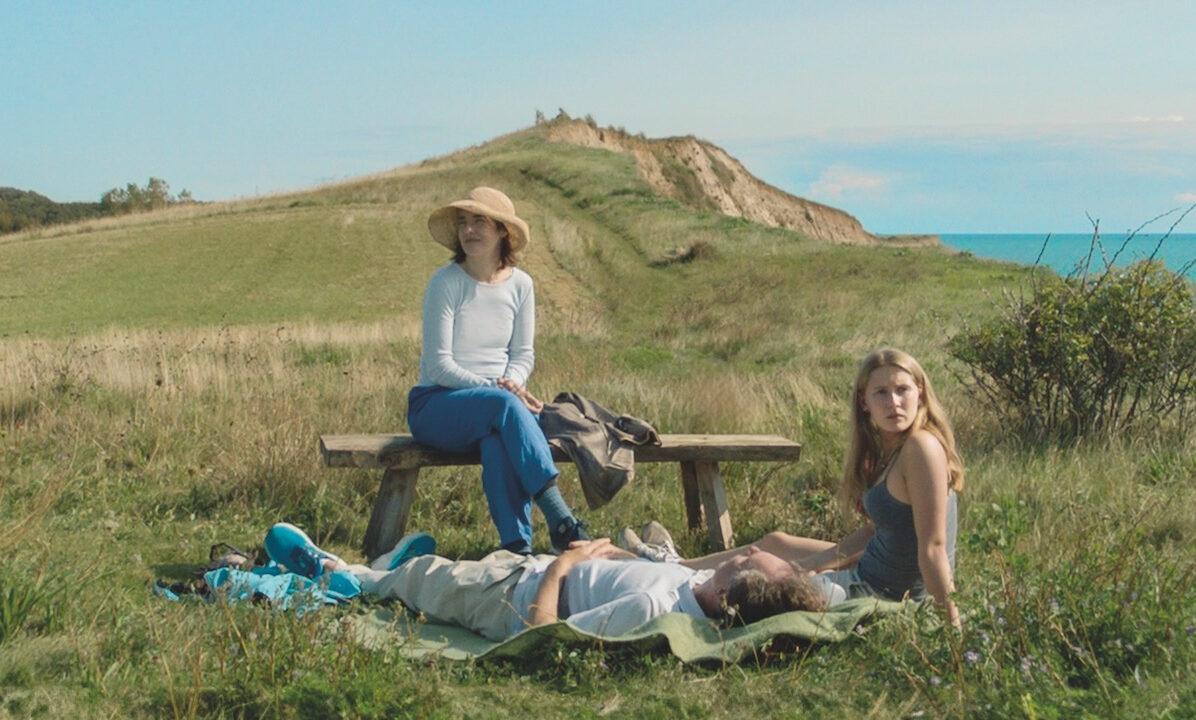My Eternal Summer

In My Eternal Summer, Danish director Sylvia Le Fanu crafts a minimalist yet deeply moving narrative about a family’s slow unravelling as they confront the impending death of a terminally ill mother. With her debut feature, Le Fanu focuses on the emotional landscape of Fanny (Kaya Toft Loholt), a 15-year-old girl spending what is likely her last summer with her terminally-ill mother, Karin (Maria Rossing) in the family’s coastal summer home. The idyllic setting becomes the stage for an intimate exploration of grief, memory, and the small, nearly imperceptible moments that accompany the complicated process of a premature goodbye.
Le Fanu resists melodrama, opting instead for a visual and narrative naturalism that allows the weight of the characters’ emotions to surface organically, reminiscent of Yasujiro Ozu’s Tokyo Story (1953). In this respect, My Eternal Summer feels distinctly classic, eschewing sentimentality in favour of the understated facets of daily life – silent breakfasts, awkward silences and mundane problems like Fanny’s frustration with the poor internet connection. Things happen – Fanny spends time with her friends, navigates her relationship with her boyfriend and even gets a job as a waitress – as the film navigates the profound without losing sight of the ordinary. But Le Fanu’s subtle touch does not diminish the film’s pervasive sense of foreboding. Constrained by her illness, Karin is physically incapable of ascending the staircase in the summer house, a limitation that feels symbolic of her broader entrapment. Similarly, when Fanny is frightened by a large spider and instinctively calls for her mother, it is instead her father who comes to her aid – a small but telling subversion of expectations
At just 15 during filming, Loholt delivers a performance that embodies the volatility of adolescence and the weight of profound loss. Her portrayal brims with the restless energy of a teenager caught between mourning her mother and her own rocky coming-of-age. The camera lingers closely on Fanny, but in its occasional departures, it offers glimpses of the barely-restrained devastation of her parents in moments that add to the film’s emotional texture without ever feeling heavy-handed or didactic.
What makes My Eternal Summer particularly dignified is its refusal to capitalise on its characters’ vulnerabilities. Instead, Le Fanu draws on the unrelenting passage of summer days, underscored by the repetitive sounds of the ocean’s waves and the shifting natural light – marking the quiet anticipation of death, resolution and whatever’s next to come. It’s a work that invites contemplation on the cyclical nature of life and loss, offering no easy answers in the face of time’s unyielding march.
Christina Yang
My Eternal Summer does not have a release date yet.
Read more reviews from our London Film Festival coverage here.
For further information about the event visit the London Film Festival website here.
Watch the trailer for My Eternal Summer here:
























Facebook
Twitter
Instagram
YouTube
RSS